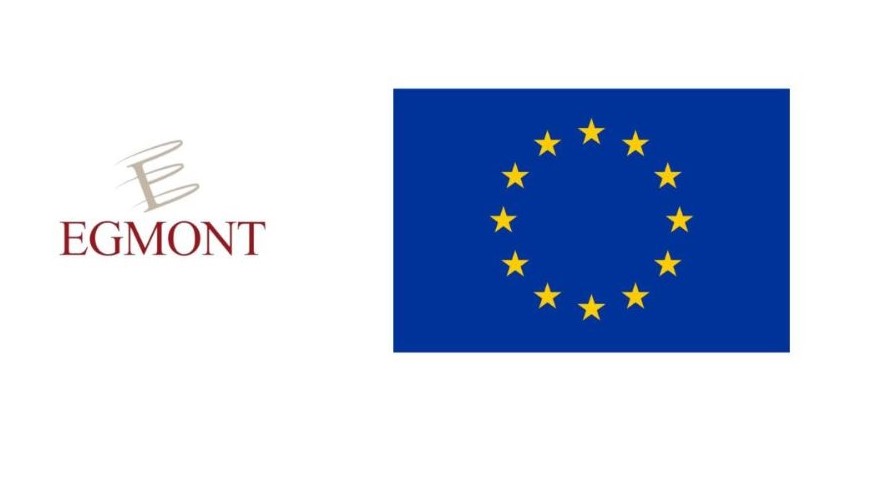Addressing the Conflict in Eastern DRC – Security Challenges and Pathways to Peace

Date
13 June 2025
Time
09:00-13:00
Location
University Foundation, Rue d'Egmont 11, 1000 Brussels
Type of Event
Seminar
Organisation
Egmont Institute
The protracted conflict in the eastern Democratic Republic of Congo (DRC) has witnessed a significant surge in violence since the beginning of the year. This is particularly the case due to the M23 rebel group’s advances in North and South Kivu, actively supported by Rwanda. This escalation has exacerbated regional instability, leading to substantial humanitarian crises and posing complex challenges to existing peace efforts. The recent peace talks between DRC and M23 facilitated by Qatar, and the parallel US led talks between DRC and Rwanda, have led to a fragile cease fire, yet the future remains uncertain as long as the root causes are not addressed. Implementation of any potential peace agreement also remains a continuous problem.
In response to this situation, a focused conference is proposed to delve into the security dynamics and analyse ongoing peace processes. Policy makers, diplomats and academics will engage in exchange with the two expert panels, with the aim to reflect on new perspectives on how to proceed towards a more stable situation in the region.
Agenda
09:00-09:05 Welcome by Egmont Institute
09:05-09:15 Keynote by EUSR Johan Borgstam
09:15-10:45 Panel 1: Security Concerns and Guarantees for Regional Actors
This panel will concentrate on the multifaceted security challenges confronting the eastern DRC and its neighbouring countries.
Speakers:
Prof. Dr. Koen Vlassenroot, Ghent University, Belgium
Prof. Dr. Kristof Titeca, Antwerp University, Belgium
Prof. Dr. Judith Verweijen, Utrecht University, Netherlands
Prof. Dr. Godefroid Muzalia, ISP Bukavu, DRCongo
Key discussion points will include:
- Internal Security Dynamics: An examination of local and foreign armed groups including members of the Wazalendo coalition and their connections to the Congolese military, as well as neighbouring countries.
- Regional Security Implications: An exploration of how the conflict impacts neighboring countries, considering allegations of external support to rebel factions, refugee flows and the broader geopolitical ramifications.
10:45-11:15 Coffee break
11:15-12:45 Panel 2: Evaluating and Advancing Ongoing Peace Processes
This panel aims to map and assess current peace initiatives.
Speakers:
Mgr. Donatien Nshole, Secretary General of the National Episcopal Conference of Congo
Richard Moncrieff, Project Director, International Crisis Group
Prof. Dr. Bob Kabamba, Liège University
Dr. Erik Kennes, Egmont Institute
Key discussion points will include:
- Luanda and Nairobi Processes: An appraisal of these regional peace efforts, their recent merger into a unified framework spearheaded by EAC and SADC and endorsed by the AU, and the implications for conflict resolution strategies.
- Doha Talks: An analysis of the recent negotiations facilitated by Qatar between the Congolese and Rwandan government and M23 representatives, focusing on their potential to achieve a sustainable ceasefire and address underlying conflict drivers.
- US led talks between the DRC and Rwanda: An assessment of the commitments/outcomes and discussion on how to leverage the momentum created by this process, in relation to the other peace initiatives.
- Role of Religious Institutions: An exploration of the involvement of churches and faith-based organizations in mediating peace and fostering community reconciliation.
12:45-13:00 Closing Remarks by Egmont Institute
Conference Objectives
- Comprehensive Analysis: To dissect the current security situation and understand the interplay between local and regional actors.
- Critical Evaluation: To assess the effectiveness and limitations of existing peace processes in addressing the root causes of the conflict.
- Strategic Recommendations: To develop actionable insights and policy recommendations aimed at enhancing security and advancing peace efforts in the eastern DRC.